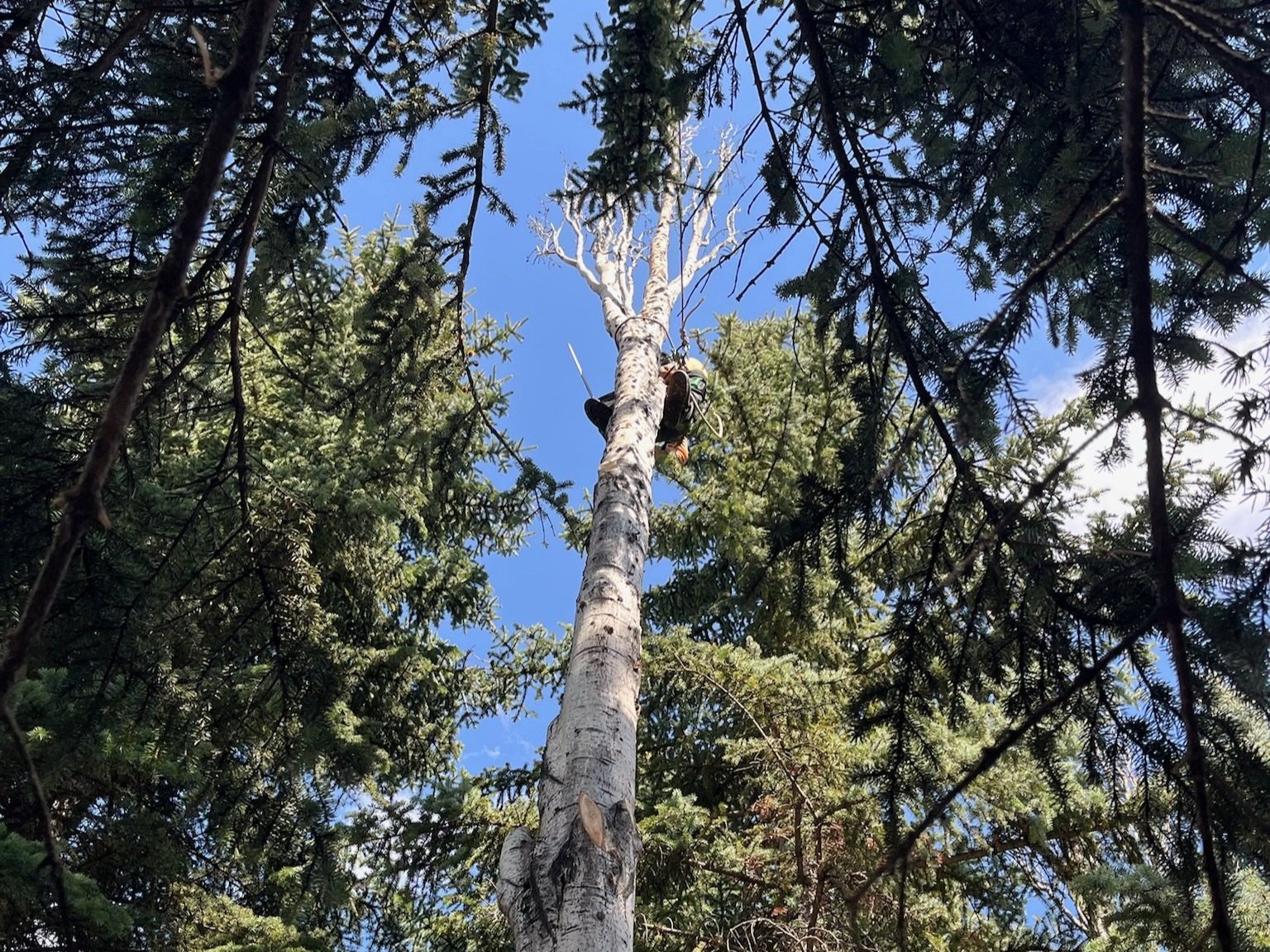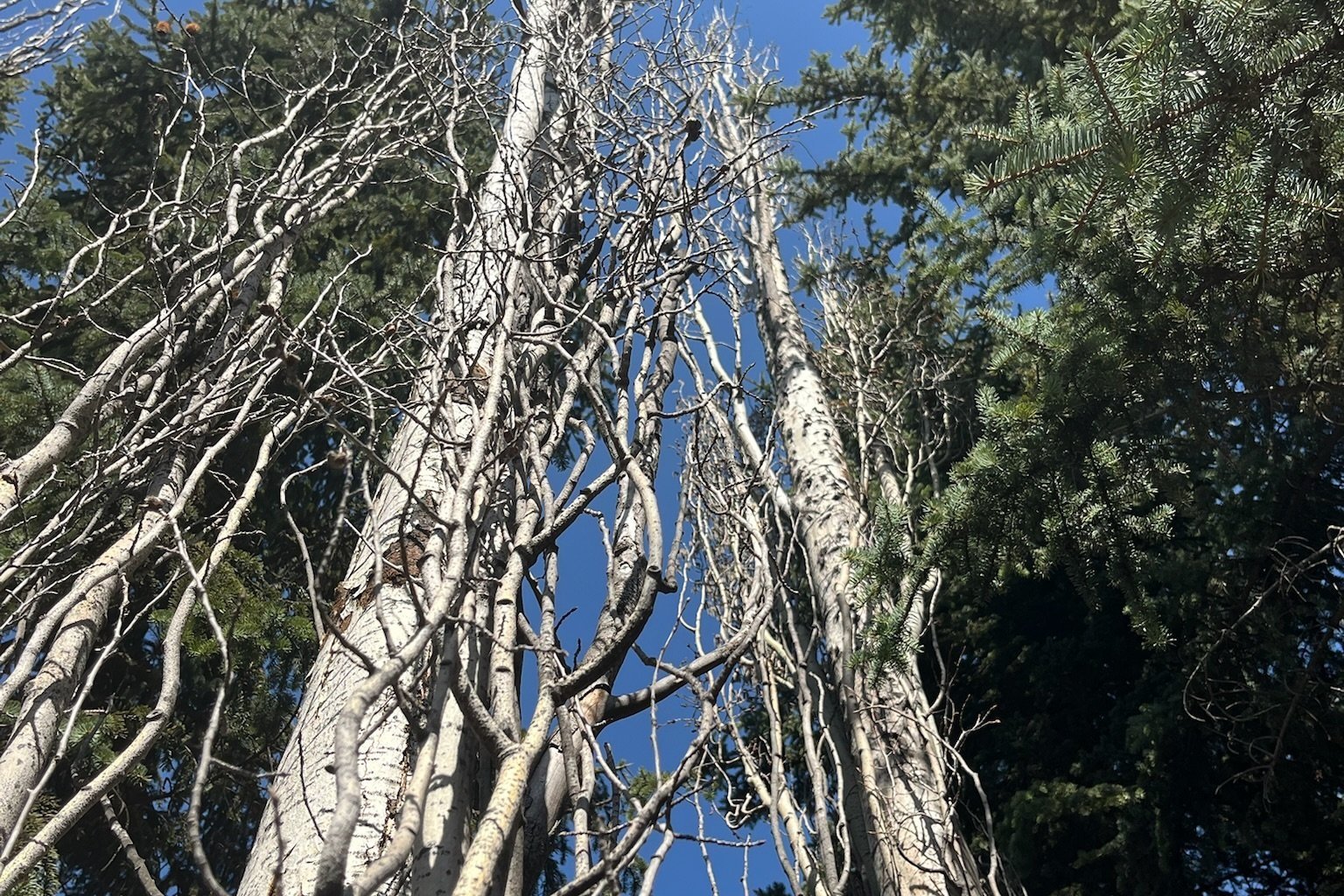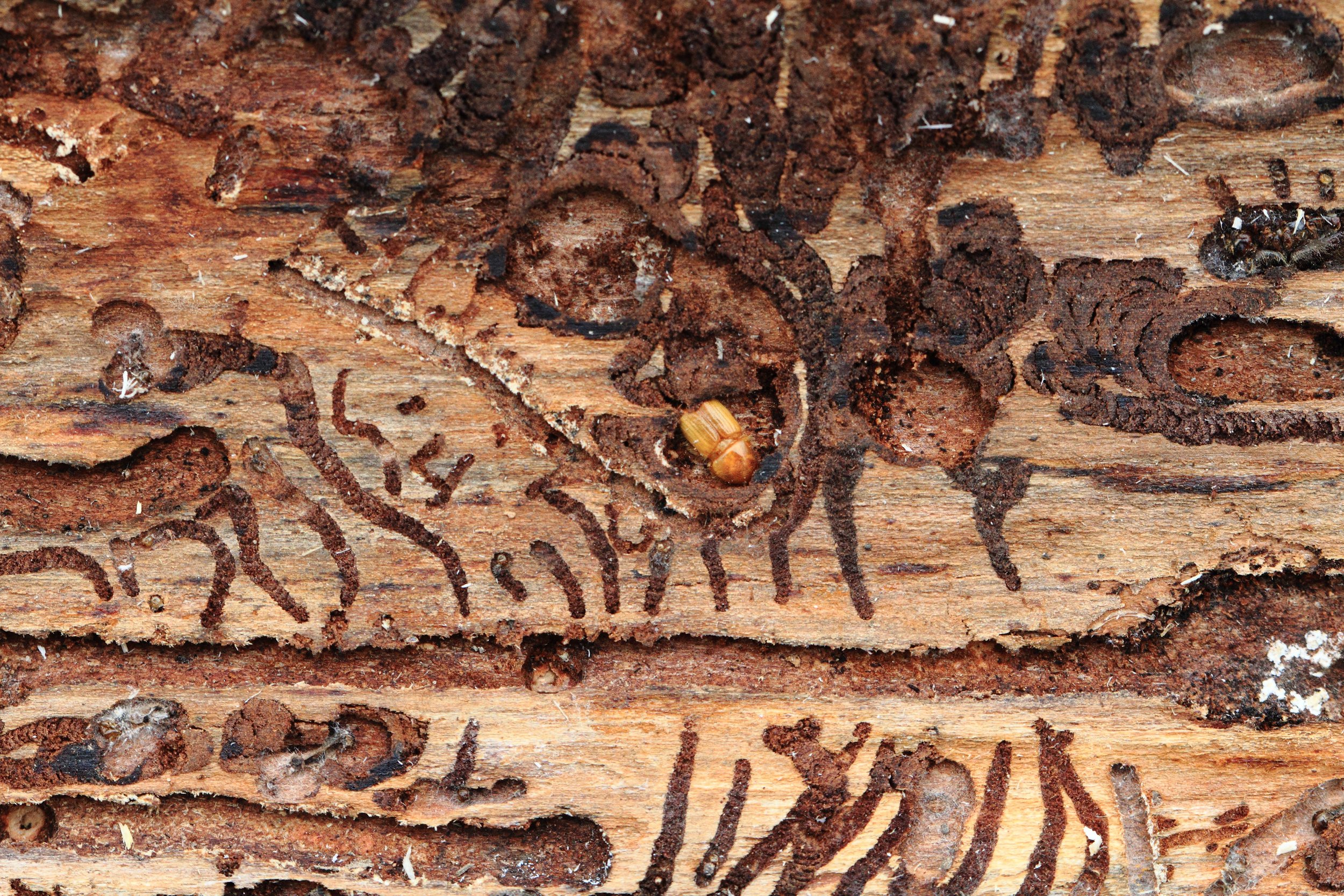Spring Tree Care Checklist for Alberta Homeowners
Prepare Your Yard for a Healthy Growing Season
Spring is a critical time for trees in Alberta. After enduring months of snow, ice, and freezing temperatures, trees need a little TLC to recover and thrive through the growing season. Whether you're a seasoned gardener or a new homeowner, following a solid spring tree care routine can help you avoid costly issues later and ensure your trees stay healthy, safe, and beautiful all year.
Here’s your essential spring tree care checklist—customized for Alberta’s unique climate and growing conditions.
Inspect for Winter Damage
It is important to inspect for signs of winter damage. Start by walking your property and taking a close look at each tree. Look for:
Broken or hanging branches
Cracked bark or split limbs
Leaning trunks or uprooted trees
Dead limbs or tip dieback
Ice and wind damage are common in Alberta, especially on older or top-heavy trees. If you spot large broken branches or signs of structural stress, contact a trained arborist—it may require professional pruning or removal.
Prune Safely and Strategically
Spring is the perfect time to remove dead, damaged, or diseased limbs before new growth begins. Focus on:
Deadwood removal (branches that don’t leaf out)
Crossing or rubbing limbs
Sucker growth from the base or roots
Avoid aggressive pruning during early spring while sap is rising, especially for birch, maple, and elm. Wait until mid-to-late spring for these species, or consult local tree bylaws.
Note: In Alberta, pruning elm trees is banned from April 1 to September 30 to prevent the spread of Dutch Elm Disease.
Clean Up Mulch & Debris
Mulching is one of the most beneficial practices a homeowner can use for better tree health. Remove built-up mulch, salt residue, and any organic debris around the base of trees. This helps prevent:
Fungus and mold growth
Rodent damage hidden beneath snow cover
Soil compaction and suffocation of roots
After cleaning, apply a 2–3 inch layer of fresh mulch, keeping it a few inches away from the trunk to avoid “mulch volcanoes,” which can rot the bark.
Test Soil and Fertilize if Needed
If you had weak tree growth last year, consider doing a soil test to check nutrient levels and pH balance. In Alberta’s clay-heavy soils, trees may lack sufficient nitrogen or iron, particularly in urban environments.
Use a slow-release fertilizer only if needed—excess nitrogen can stress trees and cause weak limbs.
Check for Early Pest Activity
Insects and diseases wake up as soon as the snow melts. In Alberta, keep an eye out for:
Poplar borer and leaf miners
Aphids
Bronze birch borer
Spruce budworm
Look for holes in bark, oozing sap, or curled/discolored leaves. Early detection is key—many infestations can be controlled if caught in spring.
Note: It may not be necessary to control pests if numbers are low and damage is not significant. Learn more.
Plan for New Tree Planting
Spring is ideal for planting new trees. Choose native or cold-hardy species like:
Amur maple
Bur oak
Spruce
Lodgepole pine
Mountain ash
Plant in well-drained soil, with proper spacing, and be sure to water young trees regularly—especially in May and June when Alberta’s spring rains are unpredictable.
Schedule a Professional Tree Inspection
Even healthy-looking trees can have hidden hazards—cracks, hollow limbs, or disease under the bark. A trained arborist can help with:
Tree health assessments
Risk evaluation (especially near homes or power lines)
Preventative pruning
Safe removals
For mature or high-value trees, a spring inspection can protect your investment and prevent property damage.
Final Thoughts: Keep Your Trees Safe, Healthy & Beautiful
Caring for your trees in the spring pays off all year long. A little attention now can prevent storm damage, improve curb appeal, and support biodiversity in your yard.
Not sure where to start—or have concerns about a specific tree?
Contact the experts at Obsidian Birch for professional spring tree inspections, pruning, and pest control solutions across Alberta.
📩 Request a Free Estimate
📞 Call or text us us at 780-937-6369
We’re rooted in quality—and we’re here to help your landscape thrive.




